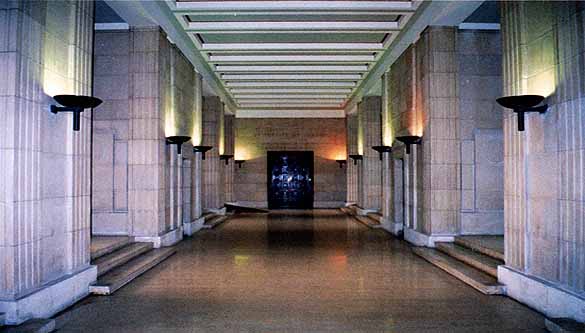| New York Architecture Images- notes |
| Fascist-era architecture in England |

|
| Charles Holden is best known
for the London Underground stations he designed for the London Passenger
Board in the 1920s and 30s.
Born in Bolton 1875, Holden was later a
partner in the Adams, Holden and Pearson Partnership, one of the most
prolific and successful firms in Britain. Over the course of his long
career Holden designed buildings both in Britain and abroad. From the
tallest office building in London, to war memorials, a University and
the first of the great public buildings, the modern Underground Station. Holden embodied both the architecture of
the modern and that of the past. A master of the traditional classical
form with a profound knowledge of construction and materials. His
modernity came from his belief that architecture should, '...throw off
its mantle of deceits; its cornices, pilasters, mouldings...' Holden believed architecture should be a collaborative effort, which explains why he declined a Knighthood, twice. A highly modest man, who was yet able to exercise such an influence that he was near hero-worshipped by his colleagues. Holden's architecture was functional and accessible. More importantly he resisted the revivalist architecture of the period with his own sense of the modern. Charles Holden (1875-1960) |